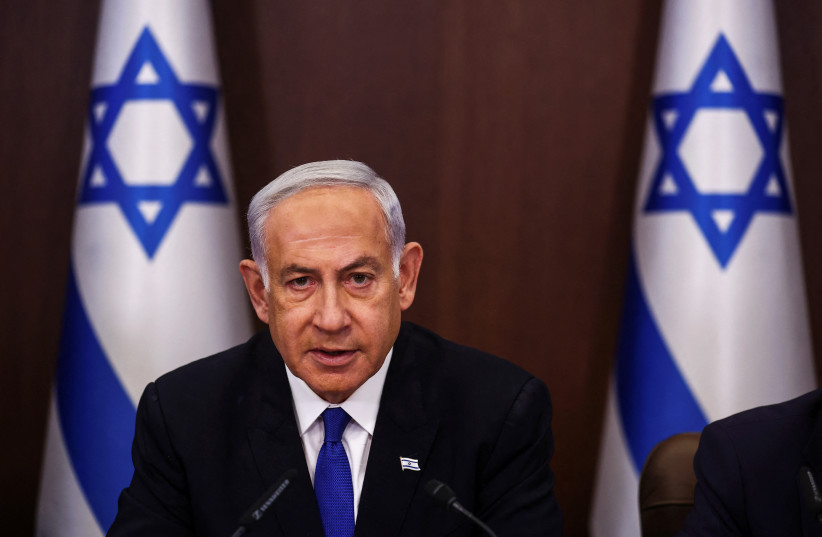Israel’s old friend Dr. Henry Kissinger recently turned 100. As the National Security Advisor and Secretary of State for nearly a decade, Kissinger dominated American foreign policy perhaps more than any other individual in the 20th century. Yet, since exiting public office, Kissinger has remained agile and influential, continuing to shape the ideas and debates of today’s global affairs – from artificial intelligence to Russia, China and world order. In many ways, as the former secretary celebrates a century, he has truly become the model elder statesman.
As Israel turns 75 and looks at the progression of the elder statesman, perhaps it can ask itself what sort of statesman it would like to be when it turns 100, in a quarter century? The best way to conceptually approach this question would be by taking a page out of the Kissinger playbook: “Any statesman is in part the prisoner of necessity… the convictions that leaders have formed before reaching high office are the intellectual capacity they will assume as long as they continue in office” (Kissinger, White House Years).
It’s important for a leader to have a well-thought-out doctrine and road map that will guide him through the inevitable turmoils of statesmanship. Otherwise, it is hard to steer the ship and change the trajectory of a state toward loftier goals.
Israeli politics has been dominated for most of the past 30 years by Benjamin Netanyahu. The best way to understand Israel’s trajectory from 75 to 100 is to understand the convictions under which it is operating. And the best way to do that is by looking at the man who has shaped those convictions for the Israeli public during the past 30 years.
Netanyahu's Israeli dogma
In his recently published autobiography, Bibi: My Story, Netanyahu describes his doctrine. While he claims that by constantly reading he has defied the limits Kissinger set on the intellectual growth of a statesman, it is clear that the basic principles that Netanyahu has operated by have remained more or less consistent policy, and become Israeli dogma:
“Military strength, combined with economic prowess, equals diplomatic success, and ultimately peace through strength.” This doctrine refreshingly modernized Israel and helped navigate challenges that the doctrines of David Ben-Gurion, Menachem Begin and Yitzhak Rabin were not equipped to meet. Practiced by Netanyahu for 30 years, it was formulated in this recent autobiography.

When Netanyahu presented his seventh government in 2023, he stated its three main priorities: Defeating Iran at all costs (military); building a high-speed, cross-country train (economy); and peace with the Saudis (diplomacy) – concrete expressions of his doctrine.
YET, AS Israel eclipses the 75-year mark, this philosophy simply cannot guide it forward. Twice before in the history of the Jewish people, a Jewish state was formed in Israel, and twice before it failed to reach 100 years. Israel surviving and thriving into the future of a second Israeli century since its 1948 inception is not an inevitability. It has never happened before for these people. It is dependent on the direction that the ship is steered and very much so on the doctrine that its captain holds to.
Peace and prosperity lie at the intersection of interests and values. Military strength and a strong economy can only bring a state so far. They may deter an enemy, but alone, they will not make a new friend. Furthermore, the maintenance of military strength and economic prowess is untenable without the cultivation of social cohesion, values, meaning and identity. And Israel’s strongest commodity, unaccounted for in the Netanyahu doctrine, neglected completely over the three decades under Netanyahu rule, is Israel’s spiritual commodity – its character as a Jewish and democratic state, its unique DNA which makes it stand out among the nations of the world.
The recent fissures in Israeli society over the judicial overhaul and religion and state issues have only shown that by omitting Israel’s more spiritual dimensions from its political doctrines, instead of being sources of inspiration they have become breaking points. A Jewish-Israeli doctrine focused solely on defense and economics is bad policy and misses out on the cultivation of the greatest commodity Israel has to offer to the world.
Joe Biden's relationship with Israel
When President Joe Biden arrived in Israel in July 2022, the deep emotional connection between Biden and Israel was felt. The connection was more than deep, it was “bone-deep,” Biden said emotionally. Israel, the Holy Land for Jews, Christians and Muslims. An ancient land for an ancient civilization that founded the moral fabric of Western society. And the only democracy in the Middle East, a beacon of light, human rights and democratic values. That is bone-deep. That makes Israel a worthwhile investment for Congress. Not just hi-tech and defensive missiles.
As Israel looks down the road to its 100th birthday, it has the chance to ponder what kind of statesman it would like to be for the world. A confused, postmodern, globalized 21st century is desperately hungry for identity, morality and meaning. It turns to Israel, the only Jewish state, just for that. But instead of responding with messages of meaning, it only touts its achievements in defense and hi-tech.
Like Kissinger said, we are stuck within a conception. And that conception, the Netanyahu doctrine, does not leave any room for spiritual growth and cultivation. If Israel wants to become the great elder statesman that the world desperately needs it to be, it needs to update its message. It needs to cultivate its main assets, as a Jewish and democratic state. And it needs to craft a message of meaning for the world.
The writer served as an adviser to then-deputy prime minister and justice minister Gideon Sa’ar in Israel’s 36th government, June 2021-December 2022.
